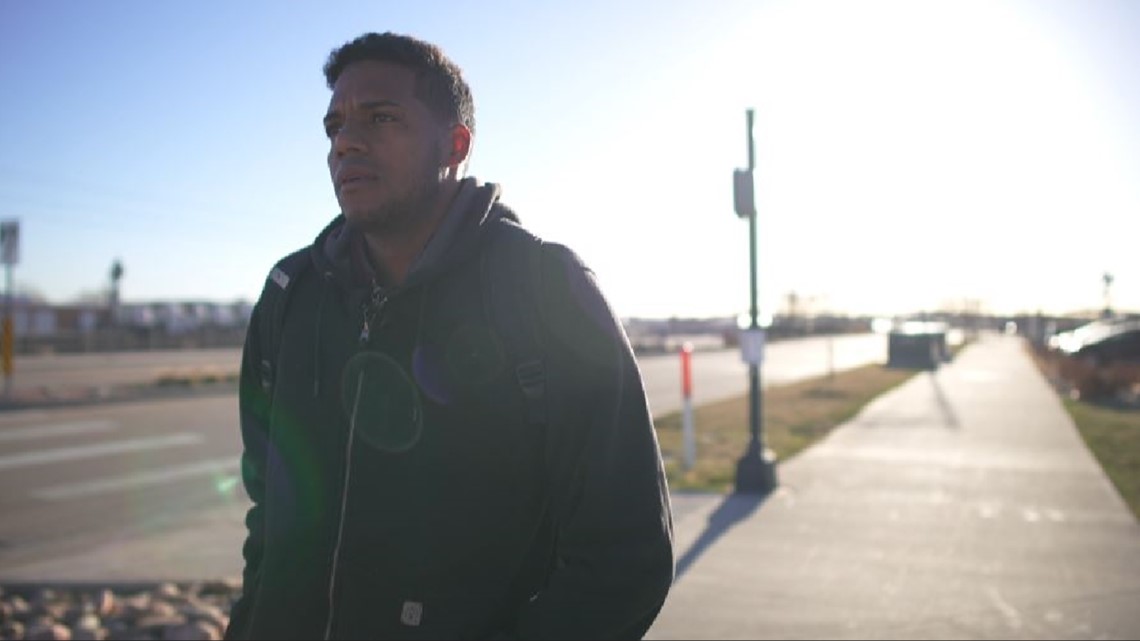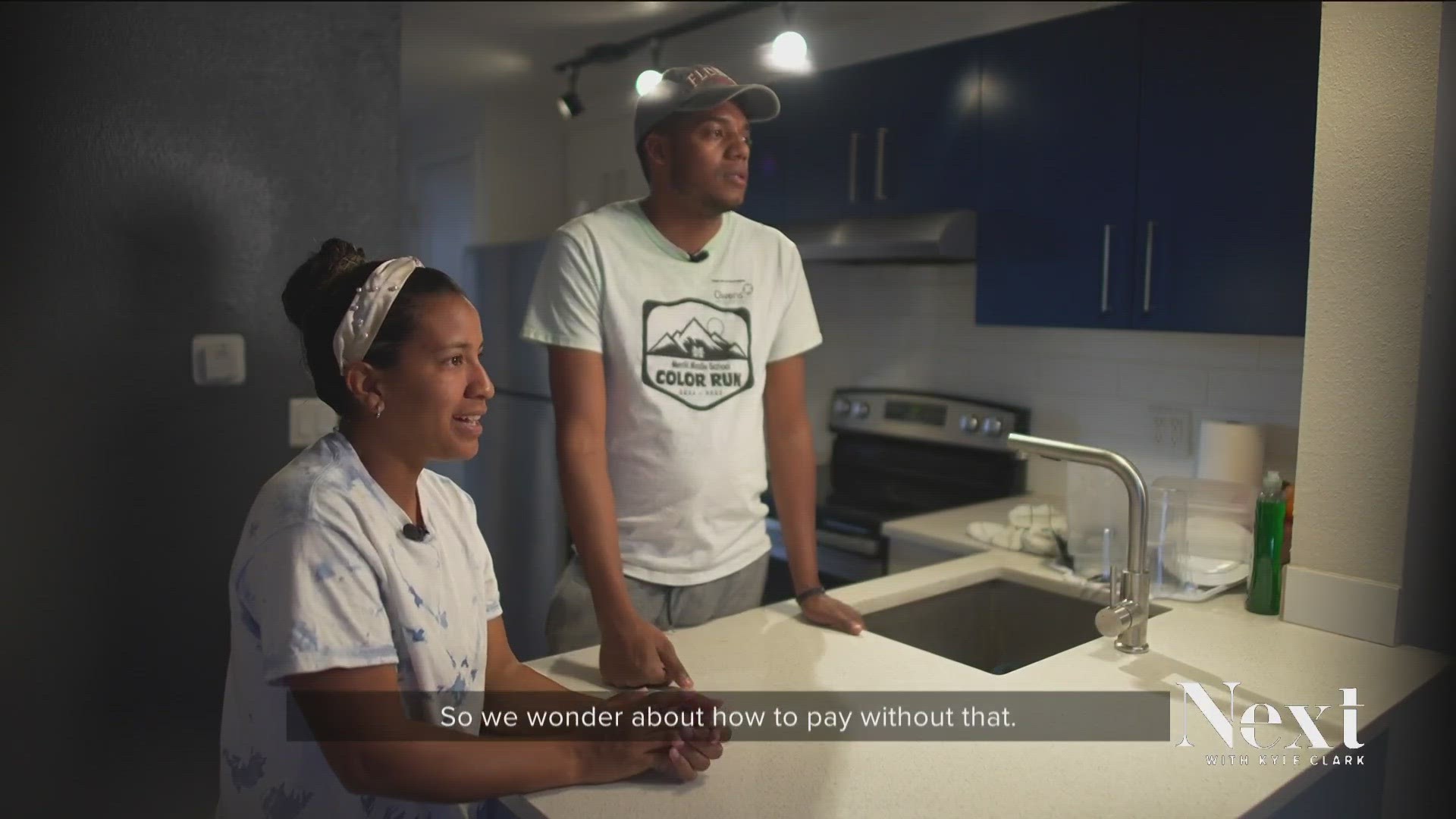DENVER, Colorado — Wilmer and his wife's journey to the U.S. took them through multiple countries before they arrived in Matamoros, Mexico, and then San Antonio, where an organization bought them a plane ticket to Colorado.
Since their arrival in Denver on Jan. 25, Wilmer and his family, including two children, stayed at a city-run shelter. In April, the city announced new changes to sheltering.
They were part of the last group who were in the shelters that had more time than others who will enter the shelter system in the future.
This week, the City of Denver announced it will only shelter migrants who have encountered immigration – largely meaning they will only serve those who have gone through a port of entry. The rule goes into effect May 8.
The city chose to move forward with the guidance as a result of funding limitations and a lack of reimbursement. Denver says it needs help with federal funding but those funds are only eligible for those who are known to immigration.
In a budget meeting, the city also made it known that rules have changed for newly arriving migrants. Those who enter the shelter system today will have only 30 days before they have to vacate.
Search for stable housing
A couple weeks ago, Wilmer and his family received a notice to vacate the shelter by April 16. The Monday prior, his family didn't have any kind of plan.
"Yes, I'm worried," Wilmer said. "Worried because the letter to vacate arrived. We have to be out by April 16. It’s complicated. We need to pay rent. It’s a requirement to pay. And yes, it’s worrisome in this way."
On Monday, Wilmer got a phone call from a nonprofit that has been helping families in the shelter. They had secured an apartment for Wilmer's family.
"We received a call on Monday at 9 p.m. in the evening that we would be moving already at 9 a.m. in the morning," said his wife, Yorgelys, who began packing their items in preparation for the move in 12 hours.
The apartment they are in costs $1,250 per month.
"It's complicated to figure out rent," Wilmer said.


Migrants must wait 160 days after entering the United States to receive a work permit, if they went through a port of entry. Wilmer is waiting for his first court date and said he hopes to receive a permit for work after the wait period.
"Because we don’t have a stable job, we think a lot about how we are going to pay (rent)," Yorgelys said.
As of right now, they are relying on odd jobs and day labor. Every morning, Wilmer looks for work in construction and Yorgelys began working cleaning houses recently.
"I need to work everyday," said Wilmer, knowing that he has to provide for his family. "They (my kids) depend on me. They are my motivation for leaving every day (to find work)."
Editor's note: The quotes that appear in this story have been translated from Spanish to English.
More race and culture coverage from 9NEWS:
SUGGESTED VIDEOS: Latest from 9NEWS

